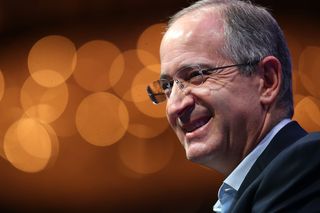Taoiseach Leo Varadkar gives first clues to next election date – and it won't be winter
Transfer pact with Fianna Fáil and Green Party on cardsFine Gael leader doesn’t want another winter campaignCoalition’s term in office can run until spring 2025
Fine Gael leader and Taoiseach Leo Varadkar has an election in his sights for late next year. Photo: Damien Storan/PA Wire
Taoiseach Leo Varadkar has indicated a general election will be held in autumn 2024.
The coalition can remain in office until spring 2025 to see out its full five-year term. However, Mr Varadkar has told Fine Gael TDs he does “not want a winter election”. He hinted at autumn 2024 instead.
Several of those present at a Fine Gael party meeting said the comments were a clear signal an election late next year was on the cards.
Senior Fine Gael sources said this “seems to be the best time, but things can change”.
Read more
Mr Varadkar said he will not be making the decision on an election date alone, as the leaders of his coalition partners in Fianna Fáil and the Green Party will also be involved.
He wants an agreed strategy on the date and a vote transfer pact between the partners.
The very latest the next general election can be held is in mid-March 2025, but that would mean going right up to the very end of the five-year lifespan of the current Dáil.
Mr Varadkar is also not in favour of leaving it to the last minute. A general election has to be held within five years of the first sitting of the Dáil after the previous campaign.
“The same Dáil shall not continue for a longer period than five years from the date of its first meeting,” the Electoral Act, 1992 states.
The current Dáil sat for the first time on February 20, 2020, following the general election on February 8. The last date for dissolving the current Dáil is February 19, 2025, which would allow for a general election at the latest around St Patrick’s Day.
However, the Taoiseach has indicated he neither wants to leave it that late nor have another winter election campaign in January and February.
Mr Varadkar was forced into a general election last time by a vote of no-confidence in then health minister Simon Harris.
The previous coalition was going to lose the vote, so the Taoiseach called a general election early in January, rather than waiting until March. At the time, a Brexit deal was still in the offing, and many consider that if he had waited for that to finish it may have been a better option.
The local and European elections are set in stone as happening every five years, so they are due in May next year.
The coalition parties, particularly Fianna Fáil and Fine Gael, are expected to lose a significant number of seats in the local elections. Sinn Féin is poised to make big gains.
An autumn 2024 election date is now viewed as the best time, but the situation can change – assuming the Government lasts that long.
But the Taoiseach said he wants the Government to end well and have an agreed transfer strategy. He made the comment off the cuff at the end of a Fine Gael parliamentary party meeting before the return of the Dáil.
“He’s thinking about a 2024 election if he doesn’t want a winter one,” a source said.
Join the Irish Independent WhatsApp channel
Stay up to date with all the latest news














